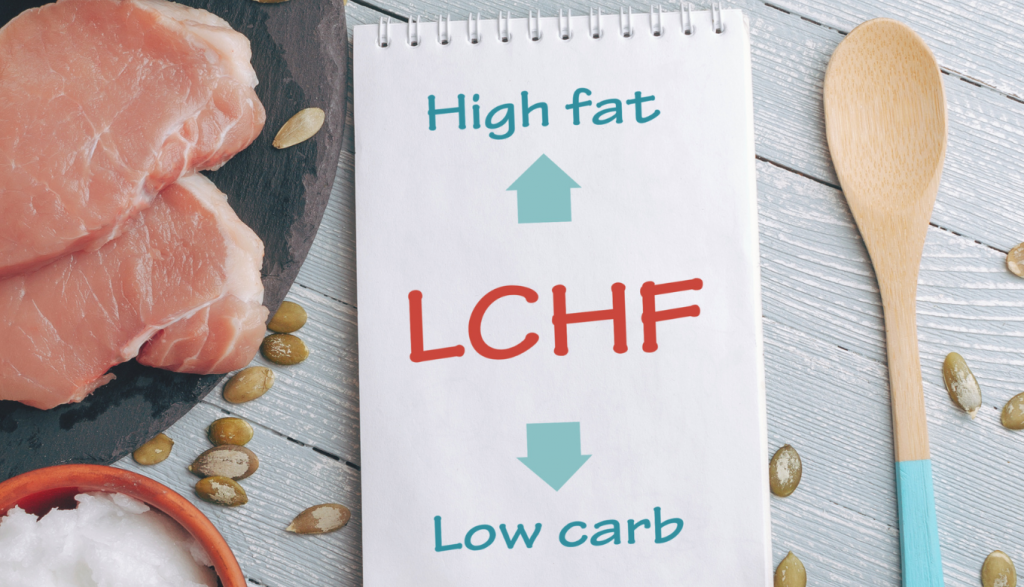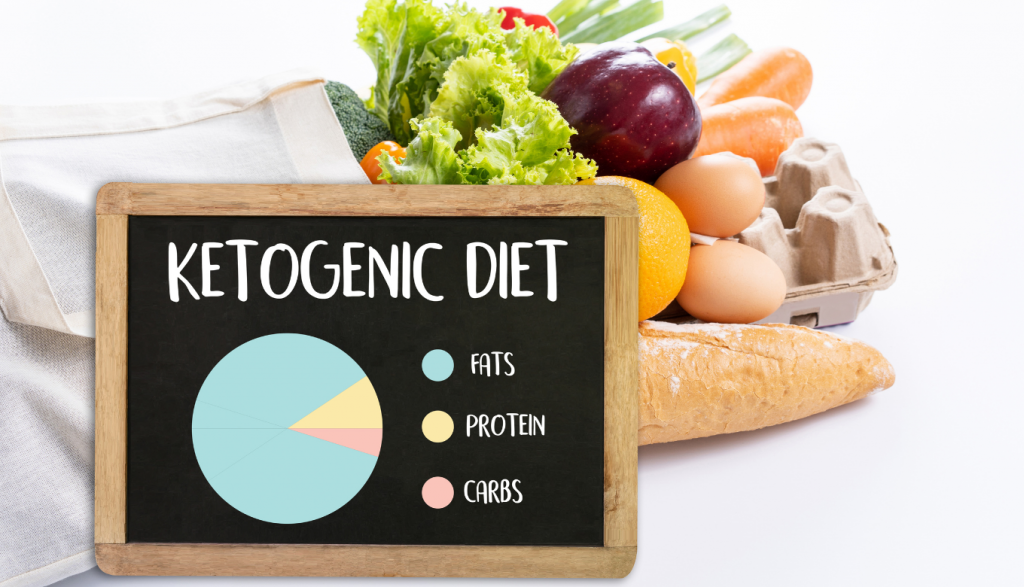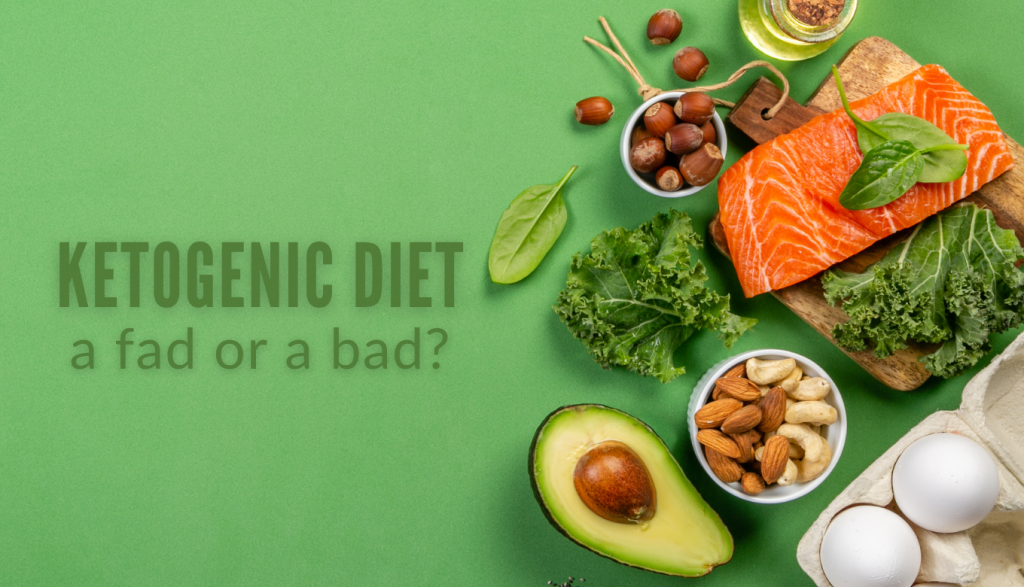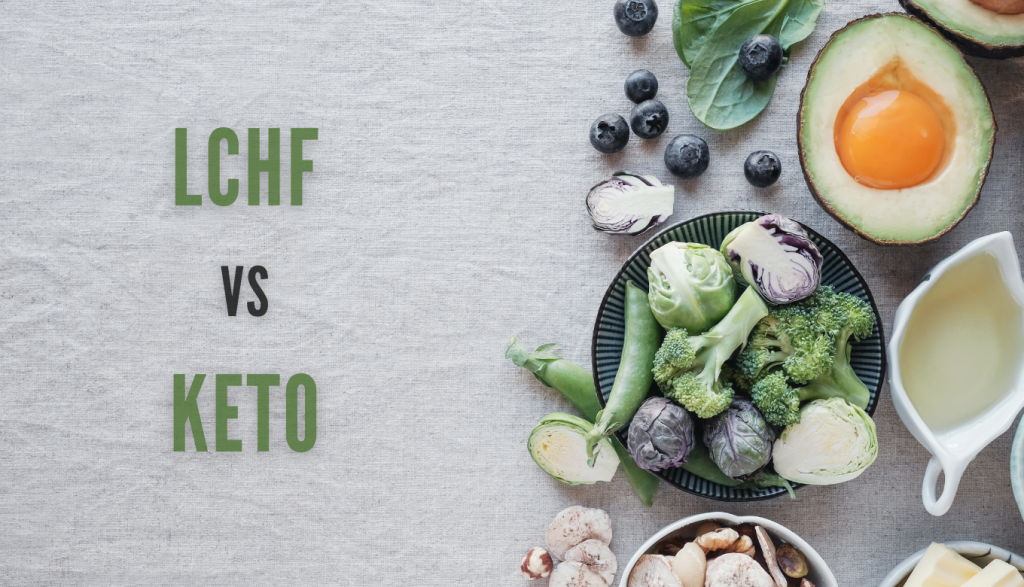OUR BLOGS
LCHF DIET

Dr. Manoj Kutteri
August 20, 2022Low carb diet has been invariably adopted by everyone who wishes to shed weight. To cater to their whims, several low-carb regimes, manuals available on the market, and even apps that stimulate the process. When you search for weight loss tips and journey, you may come across a litany of diets like low-carb, ketogenic, low-calorie, and you name it. When you think of it, low-carb and ketogenic diets have a lot of similarities. Firstly, both of them involve reducing carbohydrates. But what is the difference then? Why is the ketogenic diet considered the latest fad? Which one is beneficial? Many questions pop up when we discuss different diets, especially keto and low-carb diets. In this article, let’s dive deeper into these eating practices and their difference.
Low Carb High Fat (LCHF Diet):

A low-carb and high-fat diet is a highly employed diet in the clinical practice of treating many medical conditions. The diet emphasizes consuming low carbohydrates and replacing carbs with healthy fats. A ketogenic diet is also a kind of LCHF diet where the amount of carbs is almost nil. The body sometimes enters the state of ketosis where glucose is no longer an energy source, and ketone bodies from the fat metabolism fuel the body functions. Before understanding the benefits of the LCHF diet, let me shed some light on the ketogenic diet.
What is a Ketogenic diet?
A ketogenic or keto diet is nothing but a very low carbohydrate diet with high consumption of fat at the same time keeping the protein moderate. Here is the proportion of nutrients involved in the keto diet: carbs – 5-10%, fat – 55-60%, protein: 30-35%. The idea is to get more calories derived from fat and protein instead of carbohydrates. Most people prefer the keto diet as a key to their weight loss journey. It is also proven to benefit certain medical conditions such as Epilepsy, Type 2 Diabetes Mellitus, Parkinson’s disease, Alzheimer’s disease, and so on.

Carbohydrates are the primary source of energy production in the body tissues. When the body is deprived of carbs, the hormone insulin, a gatekeeper of glucose, reduces. Our body enters a catabolic state where our stored resources break down for energy and fuel our body. During the initial days, our body utilizes stored glycogen in the liver as fuel to run the vehicle. When glucose availability drops further, fats take up the responsibility to provide energy in the form of ketone bodies. This state is referred to as “nutritional ketosis.” It is considered safe as the body produces ketone bodies in a minimal quantity without altering the blood pH. In this way, the body maintains efficient fuel production even during a caloric deficit. Ketone bodies also decrease free radical damage and enhance antioxidant capacity.
The ketogenic diet- a fad or a bad?

The keto diet undoubtedly helps in several disorders, as mentioned earlier. It has gained popularity in the western parts of the world as it paves the way to rapid weight loss. We are all aware that losing weight is a grueling process. It entirely depends on the type of body we possess. Sometimes weight loss is rapid, and sometimes it reaches a plateau where you no longer lose weight despite exercise and restrictions. In such cases, the keto diet is a holy grail to bust the plateau. It also helps to reduce the blood glucose level and keep it within normal limits in diabetic individuals. It dissolves the unwanted fat accumulated around the organs that are known to cause various inflammatory diseases. Discussing about workout regime, keto can be optimized according to the activities you do. The term “carbing up” is often referred to as the consumption of carbs ostensibly before the workout as a strategy to level up the energy and optimize muscle gain during the keto diet.
Although keto has proven to have multiple merits on health, flipping the coin also has its cons. Being on the keto diet for longer-term bears a negative effect on your kidneys, causing kidney stones. Close monitoring of renal functions while on a ketogenic diet is imperative says the study. It causes constipation since it lacks fiber in the diet. Nutritional deficiencies are more common in long-term keto practice. With a multitude of health benefits, it is also strung with caution.
LCHF- a sustainable diet:
As the name suggests, a low-carb, high-fat diet involves restricting carbohydrates especially processed sugar products, grains, etc. Contrary to the keto diet, it consists of consuming salads and boiled veggies loaded with good starches and protecting the gut from losing its integrity. It has similar benefits as the keto diet, but the advantage is that it does not harm the body in the longer run. The proportion of carbohydrates and proteins in LCHF is limited not as low as in the keto diet triggering ketogenesis (production of ketone bodies for energy).
Both diets have been shown to help with weight loss, improving insulin sensitivity and hormonal balance. To answer the question “which diet is better”, it can be said unequivocally that no diet fits all. Weighing all the benefits, a low-carb, high-fat diet would be advantageous in practicing long-term without taxing organs, causing constipation, and low blood sugar.

The bottom line is cutting out all processed and refined carbohydrates can make a difference in your health. A low-carb, high-fat diet or keto diet is more than just a diet; it is a lifestyle change that can be adapted to enhance our health and well-being. Another perk of LCHF is, that it can be a great option for those who do not need to abide by the strict rules of the keto diet.
Taking up any diet requires an understanding of our body rationally. In the case of health conditions, it is crucial to seek a medical professional’s advice for the best dietary regime. The experts from Atmantan Naturals would guide you through your health journey, comprehending your body better in all facets and understanding the root cause of the condition. The Wellness team of Atmantan Naturals also guide you through the various weight loss supplements such as Shecurve; Garcinia extracts, Herbal formulations – Diasolve to reduce the Insulin Resistance and Visceral fat, Omega 3 to reduce the adipose tissue and systemic inflammation etc. Are you someone hesitant to follow a diet considering it an unpleasant journey? Not at all, take your first step with Atmantan Naturals.
While Keto is a form of extreme LCHF which can be used for a short term period to treat metabolic conditions, LCHF is a more sustainable diet plan which can be continued for long term and may not have major health impact.
Keto (for short term) suitable for
- Alzheimer’s diseases
- Parkinson’s Disease
- ADHD
- Autism
- Diabetes (for short term)
- PCOD (for short term)
- Obesity (for short term)
Keto not suitable for
- High uric acids
- Kidney problems
- Diabetes (for long term)
- Ischemic Heart Diseases
- Severe Osteoporosis
- Acute Fatty Liver
- Fat metabolism disorders
- Pre-existing pancreatic conditions
- Pregnant and lactating
- Type 1 Diabetes
LCHF is suitable for
- Heart health
- Insulin Resistance
- PCOD
- Diabetes
- High Triglycerides
- Fatty Liver
- Obesity
ATMANTAN NATURALS
For Stress
Effective stress management to help you break its hold on your life
SHOP NOW
ATMANTAN NATURALS



ATMANTAN NATURALS
You are one step closer to unlocking your health
Do you have a
question?
 Ask our healers now
Ask our healers now
